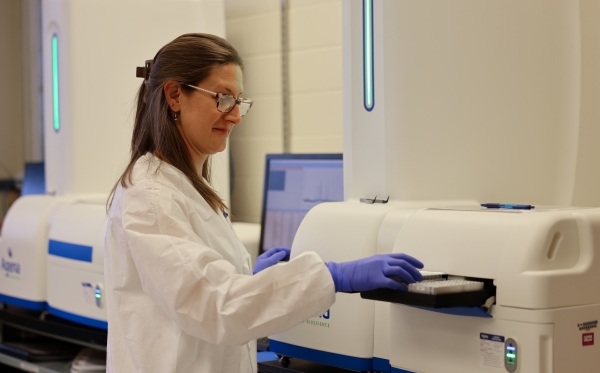Groundbreaking Molecular Diagnostic Test Accurately Diagnoses Major Genetic Cause of COPD
Posted on 10 May 2025
Chronic obstructive pulmonary disease (COPD) and Alpha-1 Antitrypsin Deficiency (AATD) are both conditions that can cause breathing difficulties, but they differ in their origins and inheritance. AATD is a genetic disorder where the body does not produce sufficient amounts of a protective protein, whereas COPD is typically the result of prolonged exposure to irritants such as cigarette smoke. AATD is the second most common genetic lung disease in the United States, following cystic fibrosis. Affecting roughly 1 in 3,000 to 1 in 5,000 individuals, it is estimated to impact about 100,000 Americans, although many cases remain undiagnosed, leading to delayed treatment and potentially worse outcomes. Researchers have now developed a groundbreaking molecular diagnostic test that can accurately diagnose AATD, addressing a long-standing challenge in the medical community.
The innovative 23-SNP alpha-1 antitrypsin (AAT) assay, developed by scientists at National Jewish Health (Denver, CO, USA), significantly enhances the speed and accuracy of diagnosing AATD by identifying multiple genetic mutations linked to the condition. In a study published in CHEST Pulmonary, the researchers validated the assay using 373 biological samples, demonstrating its capability to detect 20 pathogenic mutations in the SERPINA1 gene, which is responsible for producing AAT protein, as well as two normal variants and an additional variant that is still being studied.

This new assay expands the number of genotypes that can be detected, including rare alleles such as F, I, and some null alleles. The results showed 100% accuracy in identifying abnormal mutations in patients with AATD, greatly surpassing the traditional isoelectric focusing gel method and other molecular tests that only detect S and Z alleles. The researchers believe this test could serve as a foundation for newborn screening programs and at-home sample collection, offering a significant boost to early detection efforts.
“AATD is widely underdiagnosed, leading to delays in treatment that can worsen disease outcomes,” said Yongbao Wang, PhD, lead researcher and senior author on the paper. “Our test provides an accurate, comprehensive and rapid genotyping solution that can be implemented as a frontline diagnostic tool.”
“This is a significant step forward for both clinicians and patients,” added Sharon Kuss-Duerkop, PhD, senior scientist at National Jewish Health. “With quicker and more reliable results, we can diagnose AATD earlier and start appropriate treatments, potentially preventing severe lung and liver complications.”
Related Links:
National Jewish Health














